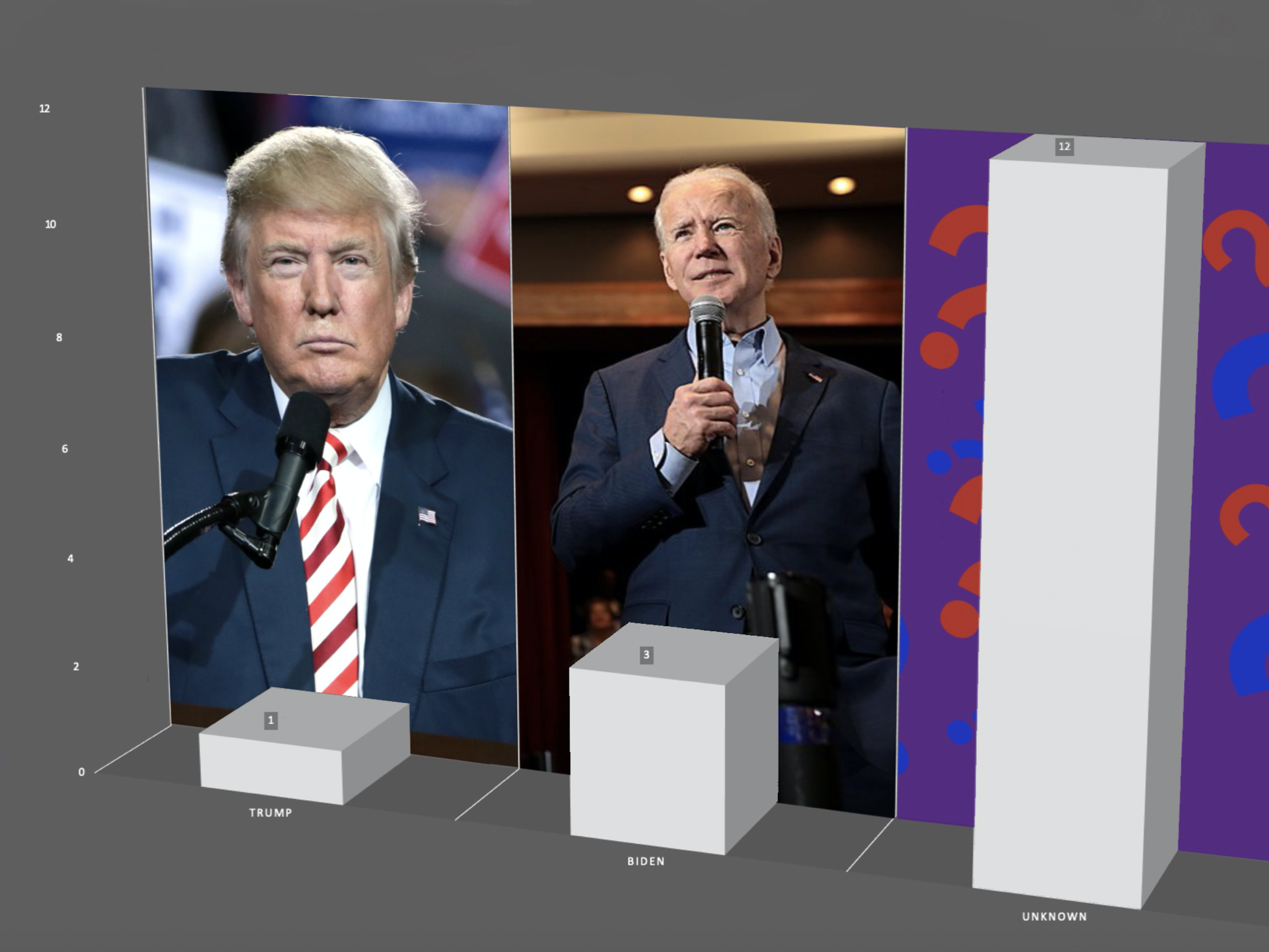
Yale Daily News and Wikimedia Commons
While Yale professors can talk for hours and with great knowledge about their specific areas of study, there’s one topic upon which very few are willing to stake their claim: the 2020 presidential election.
The News interviewed 16 professors on their predictions for Tuesday. Of that number, only four would definitively say who they believed would win the election — three said Biden and one said Trump — while the rest either deferred to the polls, said the election was impossible to predict or told the News that they could predict who would receive more votes but not who would emerge as the next president.
“As I’ve said publicly many times before, the idea of contingency is always important in the study of history, but we are living in a moment of extreme contingency, when outcomes can have a dramatic impact and go in any number of directions,” Joanne Freeman, professor of history, wrote in an email to the News. “Like everyone else, I’m watching and waiting to see what happens and what is needed next.”
David Gelernter, professor of computer science, was the only faculty member surveyed by the News who felt as though an outright Trump victory was the most plausible option. He did note, however, that predictions are too hard to make until Election Day.
Gelernter cited Trump’s “common sense” management of the coronavirus pandemic — a description with which public health experts widely disagree — his creation of the Warp Speed program to accelerate the development of a COVID-19 vaccine, his management of “one of the best economies in 100 years” and his work in the Middle East to normalize relationships between Israel and other Arab countries as primary reasons why people would reelect the current president.
“Biden doesn’t say what he’d do differently because he has no idea what he would or could do differently,” Gelernter added.
Charles Hill, Brady-Johnson Distinguished Fellow in Grand Strategy, Samuel Moyn, professor of history and Henry R. Luce Professor of Jurisprudence at Yale Law School, and David Simon, director of undergraduate studies of political science, all told the News that they believed that Biden will win the election, although they expressed varying levels of confidence in how quickly those results will be known.
Hill told the News that he predicts that the results will be known on Election Day with “scattered” protests the following few days that will dissipate quickly. He added that Trump and his constituents will claim that the results are illegitimate and due to voter fraud but, without hard evidence, this will also pass quickly.
Simon, however, said that the timeframe in which Americans will know the results depends on if Biden can win states like Arizona and Ohio and how quickly states in which he is ahead, such as Pennsylvania and Wisconsin, tally votes.
“I do not think there will be civil unrest,” Simon told the News. “I suspect there will be many controversies, and perhaps a sort of an administrative ‘scorched earth retreat’ by the Trump administration on the way out — but I do not think it will translate into violence in any systemic way.”
Matthew Jacobson, William Robertson Coe Professor of American Studies and professor of African American Studies, and Phillip Atiba Goff, professor of African American studies and psychology, both told the News that they were confident that the Biden and Harris campaign would win the popular vote, but neither believed that this would necessitate a Biden presidency.
Goff noted concern regarding a winner being declared before the total vote count is in.
“If we can wait for the votes to be counted, we have a shot at coming out the other side of this with a functional democracy — limping though it may be,” Goff wrote in an email to the News.
Jacobson said that he was “100%” certain that Biden would receive more votes, or, at the very least, that more people would attempt to vote for him. However, he cited the electoral college, USPS issues, last-minute legal actions, long lines at the polls, voter intimidation tactics and President Trump challenging the legitimacy of the election as potential reasons why the high vote count in favor of Biden might still lose him the presidency.
He added that white nationalist groups could also mobilize after Election Day or, even if Trump accepts the results of the election, that his supporters and others might still consider Biden to be an illegitimate president.
“I’ve never known an election with a longer list of plausible worries than 2020,” Jacobson wrote.
The majority of professors, however, would not even predict results with these contingencies in place. Gregory Huber, chair of the Department of Political Science, for example, told the News that the best predictors — even though they were wildly off in 2016 — are the political pollsters.
Three professors referred the News specifically to FiveThirtyEight, a statistical analysis website that conducts political polling. As of Nov. 2, the website predicts a Biden victory in 89 of 100 sample simulated scenarios.
David Sorkin, Lucy G. Moses Professor of Modern Jewish History, hesitated to make any sort of prediction about the election. But he did note that, in the past four years, American civil society has mobilized to defend democracy in a way not seen since the civil rights movement. If Biden is elected, he told the News, that mobilization should continue to happen.
Goff expressed similar sentiments.
“The most important thing about electoral politics is that they are not the only politics,” Goff wrote in an email to the News. “However folks are voting at the federal, state, and local levels, I hope that this period of time inspires everyone to stay engaged and hold those you helped elect (or voted against) accountable.”
Election Day is on Nov. 3.
Madison Hahamy | madison.hahamy@yale.edu






